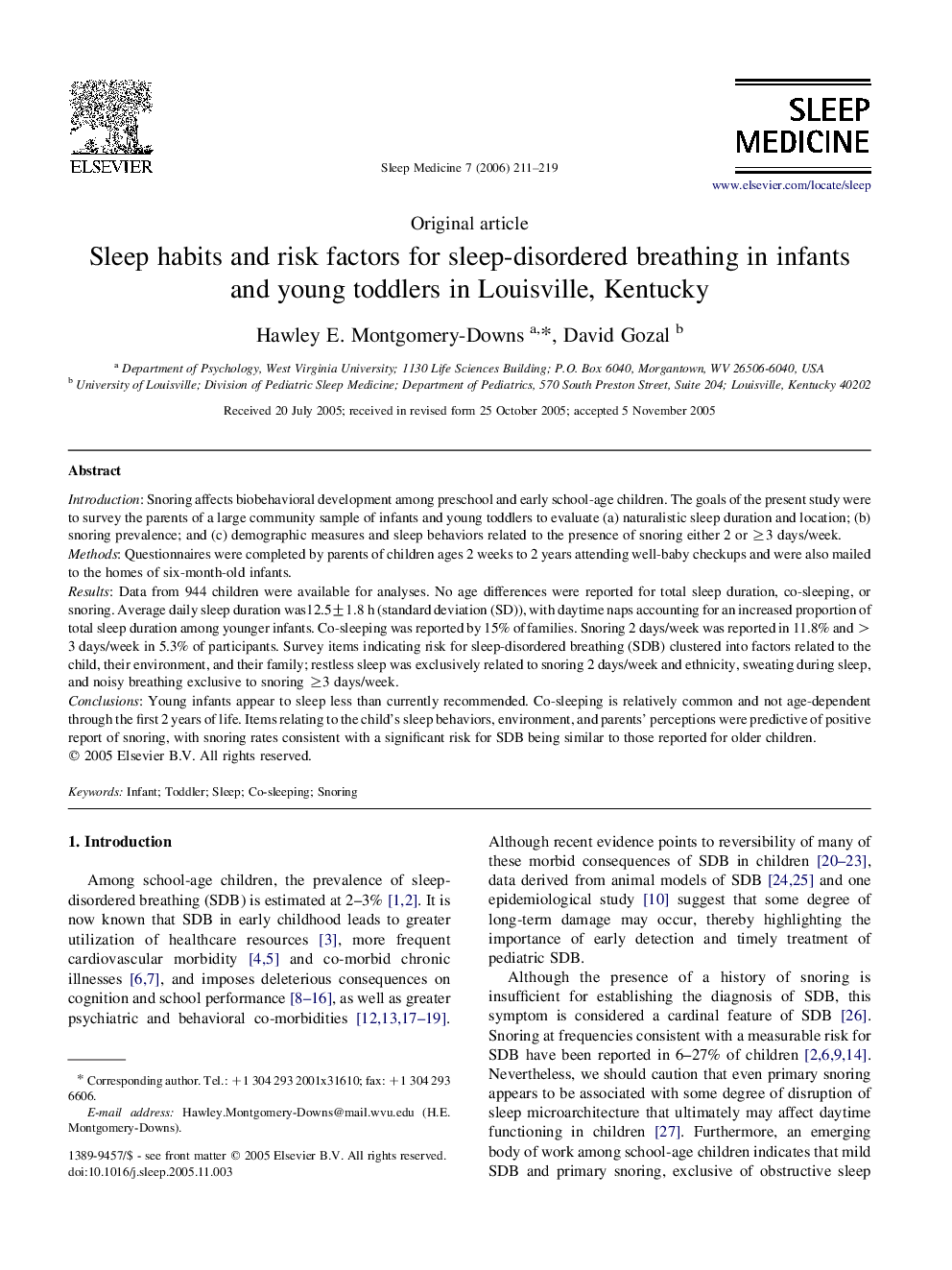| Article ID | Journal | Published Year | Pages | File Type |
|---|---|---|---|---|
| 3178386 | Sleep Medicine | 2006 | 9 Pages |
IntroductionSnoring affects biobehavioral development among preschool and early school-age children. The goals of the present study were to survey the parents of a large community sample of infants and young toddlers to evaluate (a) naturalistic sleep duration and location; (b) snoring prevalence; and (c) demographic measures and sleep behaviors related to the presence of snoring either 2 or ≥3 days/week.MethodsQuestionnaires were completed by parents of children ages 2 weeks to 2 years attending well-baby checkups and were also mailed to the homes of six-month-old infants.ResultsData from 944 children were available for analyses. No age differences were reported for total sleep duration, co-sleeping, or snoring. Average daily sleep duration was12.5±1.8 h (standard deviation (SD)), with daytime naps accounting for an increased proportion of total sleep duration among younger infants. Co-sleeping was reported by 15% of families. Snoring 2 days/week was reported in 11.8% and >3 days/week in 5.3% of participants. Survey items indicating risk for sleep-disordered breathing (SDB) clustered into factors related to the child, their environment, and their family; restless sleep was exclusively related to snoring 2 days/week and ethnicity, sweating during sleep, and noisy breathing exclusive to snoring ≥3 days/week.ConclusionsYoung infants appear to sleep less than currently recommended. Co-sleeping is relatively common and not age-dependent through the first 2 years of life. Items relating to the child's sleep behaviors, environment, and parents' perceptions were predictive of positive report of snoring, with snoring rates consistent with a significant risk for SDB being similar to those reported for older children.
